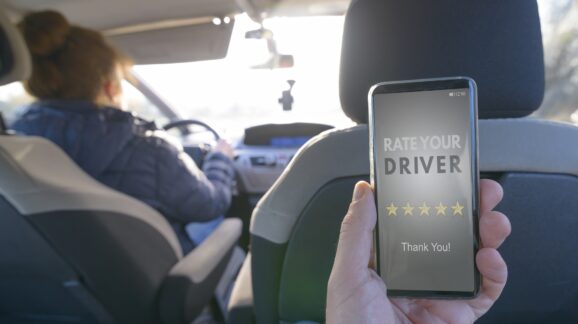Biden Labor pick Julie Su claims she cannot recall her Prop 22 vote

Photo Credit: Getty
Acting Labor Secretary Julie Su claimed multiple times Wednesday that she could not recall how she voted on California’s Proposition 22, the ballot initiate that rolled back the main provisions of the state’s controversial anti-gig economy law, AB5. Prop 22 was championed by rideshare companies like Lyft and Uber, the primary targets of AB5.
“How did I vote on Prop 22? I don’t remember how I voted on that,” Su told the House Education and the Workforce Committee. Representative Kevin Kiley, a California Republican, gave Su two subsequent opportunities to clarify her stance and each time she refused.
Su appeared baffled when asked about her vote on the proposition during Wednesday’s hearing. She grew defensive on the subject when Kiley asked about it again in subsequent rounds of questioning. “We have secret ballot votes in this country,” she declared.
It was a remarkable stance for Su, who was secretary of California Labor and Workforce Development Agency from 2019-2021 and a major champion of AB5. She was in the office when Proposition 22 passed. Biden tapped Su to replaced departed labor Secretary Marty Walsh.
The nomination is controversial largely because of Su’s record. California’s unemployment rate was 7.4% at the time left Su left state office, well above the national rate of 5.6%. An internal study found that under her stewardship the agency had awarded upwards of $33 billion in fraudulent unemployment claims during the COVID pandemic. “There is no sugarcoating the reality,” Su publicly conceded. “California did not have enough security measures in place.”
AB5 was a major issue during her tenure in California. The law effectively prohibited most companies from hiring workers as contractors, rather than as traditional full-time employees. AB5’s fans such as Su argued this was necessary to prevent workers such as rideshare drivers from being exploited. Su tweeted in 2019 that AB5 was “about preserving labor standards that are key to quality jobs in California.”
Su’s then-boss , Governor Gavin Newsom said after AB5’s passage that the law was needed to address “worker misclassification” and that state of California was “advancing the cause in righting those wrongs and continuing to transition in the implementation of AB5.”
The law forced employers to classify most workers as traditional employees, which meant the workers would be covered by various federal rules such as overtime and minimum wage regulations. The workers would no longer be guaranteed flexible work schedules. The law threatened to undermine the business model of so-called “gig” companies that rely on short-term contract workers. Uber and Lyft threatened to pull out of the state entirely if AB5 went into full effect.
Many workers in traditional freelance professions opposed AB5, arguing the law undermined their ability to maker a living. Proposition 22, which rolled back the provisions applying rideshare drivers was approved by voters in 2020. The backlash against AB5 was so fierce that even Newsom declined to say at the time how he voted on Proposition 22.
The acting labor secretary was reluctant to talk about AB5 in general, filibustering questions about whether it was a good law. She initially disputed comments that she had been involved in the drafting the law, but later in the hearing clarified that state legislators did consult with her agency prior to their drafting the legislative language.